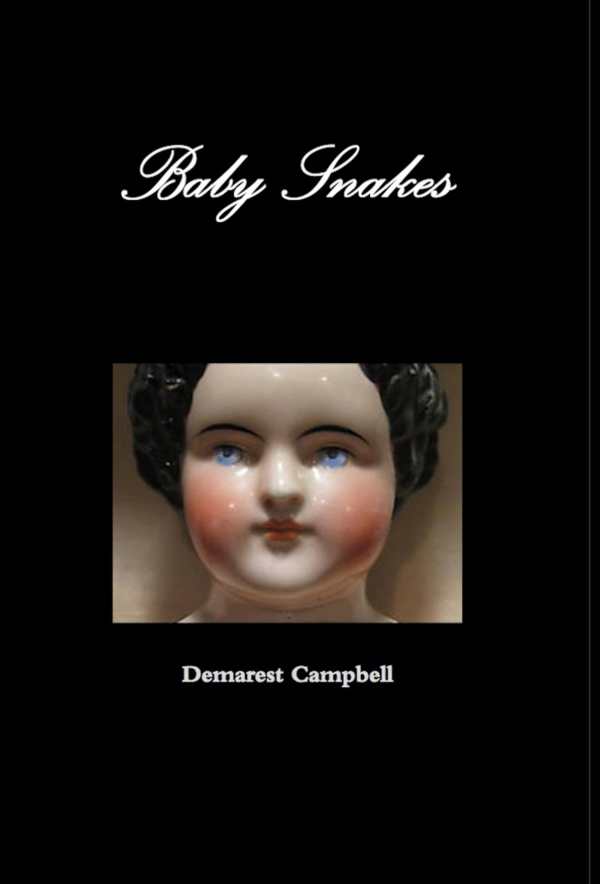
Baby Snakes
Baby Snakes is an original take on the Raj, full of wry humor, strong characters, and evocative descriptions that linger.
Full-bodied characters and a darkly comedic narrative voice combine in Demarest Campbell’s Baby Snakes, a historical novel in which Brits behave badly under the Raj.
As a favor to the Moran family, Dr. Edwin Charron agrees to accompany their daughter, Delia, home from Europe to the family residence in Calcutta. Unbeknownst to him, Delia and her maid Devi have conspired to conceal the suicide of a friend of Delia’s with whose husband the maid was having an affair. When Devi makes a dramatic suicide attempt on the voyage home, Dr. Charron gets a glimpse of the cauldron of dysfunctional relationships that awaits in Calcutta.
The glimpse is not enough. The opulent and fully staffed Moran residence is home to a fretwork of tangled alliances and bloodlines. Joining Delia and Devi as main characters is Richard, Delia’s unacknowledged half-brother by way of her father’s affair. Later, young Alistair is added to the family when Delia inherits him along with a sizeable estate.
Though the cast grows larger, the lives of these four form the core of the book, representing different aspects of the Raj experience. Delia, fascinated by science but born into a narrow world where life can pass in a languorous haze of gin and dinner parties, transcends her fate in ways that are realistic to the time and place. Devi surprises with a final act of loyalty, and Richard’s departure will bring out the handkerchiefs. The same complexity extends to the large cast with the exception of a Russian who drags Delia through a subplot.
Descriptions of people and locales blend dark humor with undercurrents of openhearted empathy and reach near-brilliant concision: Calcutta is “wrapped in decay and a good place to go insane unnoticed,” for example. The richness of the narrative voice, more than the story or the characters, makes the book compelling. However, few chapters are longer than five or six pages, so the literary quotes at the start of each chapter are more intrusive than illuminating.
In this fast-moving tale, characters appear and disappear for years at a time and locales change without warning. Attention is required, and readers whose minds wander are likely to suddenly find themselves among different characters in new settings, backtracking to see how this happened. As the story draws to a close, the pace becomes more conventional and acquires poignant resonance. The epilogue is a brilliant and satisfying surprise.
Baby Snakes is an original take on the Raj, full of wry humor, strong characters, and evocative descriptions that linger.
Reviewed by
Susan Waggoner
Disclosure: This article is not an endorsement, but a review. The publisher of this book provided free copies of the book and paid a small fee to have their book reviewed by a professional reviewer. Foreword Reviews and Clarion Reviews make no guarantee that the publisher will receive a positive review. Foreword Magazine, Inc. is disclosing this in accordance with the Federal Trade Commission’s 16 CFR, Part 255.
